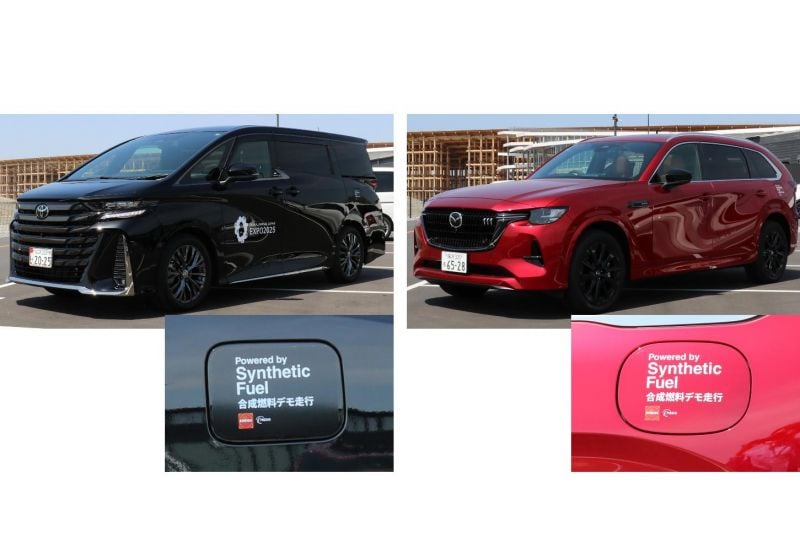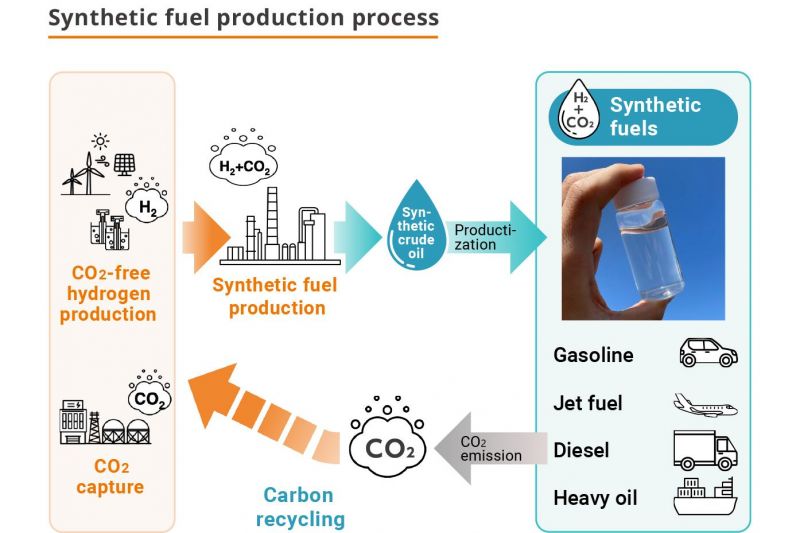Five big names in Japan’s automotive industry are backing synthetic fuels to ensure the future of internal combustion engines, with demonstrations now taking place for the public.
They’re not the only brands looking to synthetic ‘e-fuel’ to keep engines alive, with Porsche investing heavily in its e-fuel program, which includes planned production in Tasmania.
Now Toyota, Mazda, Subaru, Suzuki and Daihatsu will all provide passenger vehicles for this year’s Osaka Expo (running from April to October), and rather than running on oil-based ‘fossil’ fuels, they’ll be powered by hydrogen-derived synthetic fuels.
Manufactured by Eneos, the carmakers claim synthetic fuels are “clean energy sources made from hydrogen derived from renewable energy sources and CO2 that can reduce CO2 emissions throughout their product lifecycle”.
Hundreds of new car deals are available through CarExpert right now. Get the experts on your side and score a great deal. Browse now.
“As liquid fuels, they can utilize existing infrastructure and therefore contribute to reducing internal combustion engine CO2 emissions.”
In a joint media statement, the carmakers said that “By operating the vehicles for transporting guests and related parties at the Expo, Eneos, Suzuki, Subaru, Daihatsu, Toyota, and Mazda will promote the idea that engine-equipped vehicles running on synthetic fuel are a key mobility option on the path toward carbon neutrality.”
It’s not the first time Toyota, Mazda and Subaru have joined forces to back internal combustion engines. Last year they committed to the development of lower-emissions powertrains which will lean on hybrid assistance and the use of synthetic fuels.
All three brands have been criticised for being slow to transition to an electric model lineup, though their continued support for traditional combustion engines is claimed to come from “a deep understanding of their customers’ diverse lifestyles”.
The brands say their future engines will “not only represent their respective brands but also cater to their customers’ unique needs and preferences”.
While the most recent announcement marks one of the first times Mazda and Subaru have openly supported non-petroleum fuels, Toyota has long sought a diverse powertrain approach to reducing emissions.
In addition to developing and releasing hydrogen fuel-cell vehicles (FCEVs), the world’s largest carmaker has been experimenting with internally combusted liquid hydrogen as an alternative to petrol, with racing prototypes of its GR Corolla and GR Yaris using the world’s most abundant gas rather than high-octane unleaded petrol.
MORE: Toyota, Mazda and Subaru commit to petrol power with new engines













Leave a Reply